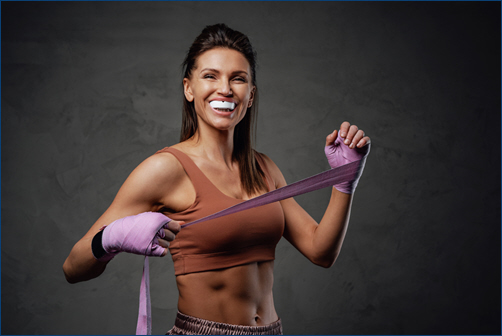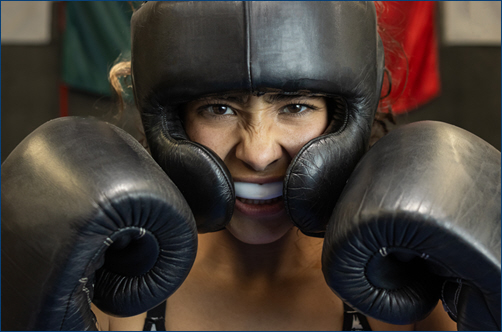Mouthguards in Preventing Dental Injuries During Sports Activities
Participating in sports activities is a great way to stay fit and healthy, but it also carries the risk of dental injuries. These injuries can range from minor chips and cracks to more severe damage, such as knocked-out teeth. Mouthguards play a critical role in protecting athletes from such injuries, ensuring both safety and confidence on the field. Understanding how they work and their importance in sports can help you make informed decisions about using them.
 Why Mouthguards Are Essential
Why Mouthguards Are Essential
-
- Protection Against Impact: They are designed to absorb and disperse the force of an impact, reducing the risk of injury to the teeth, lips, and jaw. In contact sports like football, hockey, and boxing, players are particularly vulnerable to blows to the face. A well-fitted mouthguard can significantly reduce the likelihood of dental trauma, protecting against broken teeth and soft tissue injuries.
- Prevention of Jaw Injuries: In addition to protecting the teeth, they help stabilize the jaw and prevent fractures. They cushion the impact and minimize the movement of the jaw during a collision, reducing the risk of serious injuries such as jaw fractures and concussions.
Types of Mouthguards
-
- Stock Mouthguards: Stock sports guards are pre-formed and ready to wear. They are the most affordable option but often provide a less secure fit. Due to their generic shape, they can be bulky and uncomfortable, which may affect an athlete’s ability to breathe and speak.
- Boil-and-Bite Guards: These mouthguards are made from thermoplastic material that softens when boiled. After boiling, the user bites into the mouthguard to create a customized fit. Boil-and-bite mouthguards offer a better fit than stock options and are widely used in various sports.
- Custom-Fitted Mouthguards: Custom mouthguards are made by dental professionals to fit the exact contours of the athlete’s mouth. They offer the highest level of comfort and protection, ensuring a secure fit that doesn’t impede breathing or speaking. While they are more expensive, custom-fitted mouthguards are recommended for athletes engaged in high-contact sports.
Encouraging the Use of Mouthguards
-
- Education and Awareness: Educating athletes, coaches, and parents about the benefits of mouthguards can encourage their use. Emphasizing the potential costs and consequences of dental injuries can motivate individuals to prioritize safety.
- Setting a Standard: Sports organizations and schools can play a significant role in promoting mouthguard use by making it mandatory for athletes in certain sports. Establishing clear guidelines and regulations can ensure that all participants are adequately protected.
Mouthguards are an essential preventive dentistry piece of protective equipment for athletes, helping to prevent dental injuries and ensuring safety during sports activities. By choosing the right type of mouthguard and encouraging their use, you can protect yourself or your athletes from the potential consequences of dental trauma. Prioritizing dental safety is crucial for enjoying the benefits of sports while minimizing risks.



